Departures, a film to appreciate life through eternity (ENG-ESP)
(Edited)
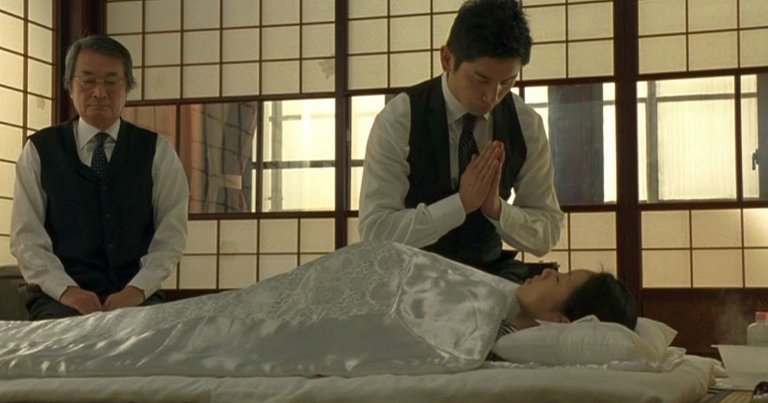
ENGLISH
Death and life. Life and death. One leads to the other in a long or short cycle, depending on the case. The truth is that both inherently coexist.
This is one of the many messages left by the film Departures (2008), or known in English as Violins in the Sky, or in Japanese (original title) Okuribito.
Directed by Yōjirō Takita and starring Masahiro Motoki, it tells the story of a young Daigo Kobayashi who, after failing as a cellist, decides to return to his native region, where an unusual ritual is practiced in some rural areas of Japan, known as Nōkanshi, which consists of preparing corpses "for the afterlife", cleaning and making them up in front of the mourners, with techniques and movements that are not far from being artistic.
The protagonist gets this kind of job, and little by little he gets used to seeing dead people, something he had never done before.
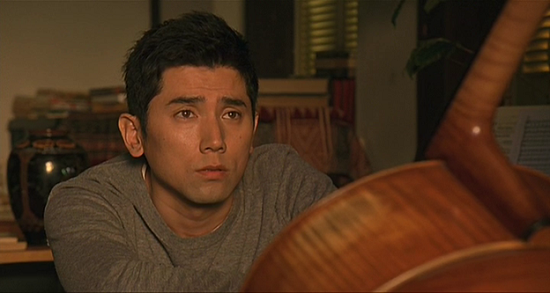
At the same time, we see the evolution of the character, who adapts to his new occupation, and how it leads him to his internal problem: the abandonment of his father.
This is a kind of living death for him, because the memory he has of him is dead, even though his father is probably alive.
It is there through work, where he appreciates the death of others and the pain day by day, which makes him reflect on the subject.
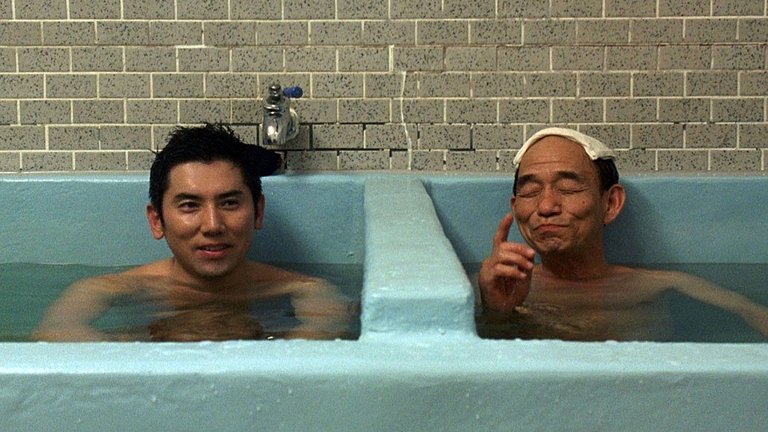
One of the memorable lines of this film is when the protagonist sees the migration of some salmon, an animal species that swim against the current to mate, but die.
Daigo says to another character: why work so hard, if you're going to die anyway?
This dialogue can lend itself to many interpretations, and one of them is that death is imminent, and it is not worth burdening one's existence for something that will end, but this does not mean that life translates into inaction or apathy, but quite the contrary: it is short, and one must make the most of it. Excessive and hectic effort rather reduces it to being a meaningless competition.
Another aspect of the film is the comedy with which they filter its premise. At the beginning it seems to be an existential drama, which it is, but little by little it leaves bittersweet situations, worthy of laughter.
Okuribito, winner of the Oscar for best foreign film in 2009, is a story to laugh, cry, and definitely appreciate life.
ESPAÑOL
La muerte y la vida. La vida y la muerte. Una lleva a la otra en un ciclo largo o corto, dependiendo del caso. Lo cierto es que ambas coexisten de forma inherente.
Este es uno de los muchos mensajes que deja la película Departures (2008), o conocida en español como Violines en el cielo, o en japonés (título original) Okuribito.
Dirigida por Yōjirō Takita y protagonizada por,Masahiro Motoki, cuenta la historia de un joven Daigo Kobayashi que luego de fracasar como chelista decide volver a su región natal, dónde se practica un ritual poco habitual en algunas zonas rurales de Japón, conocido como Nōkanshi, que consiste en preparar los cadáveres "para el más allá", limpiándolos y maquillándolos en frente de los dolientes, con técnicas y movimientos que no distan mucho de ser artísticas.
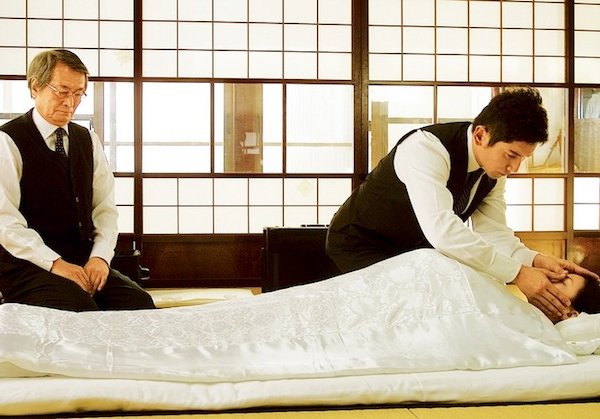
El protagonista consigue este tipo de trabajo, y poco a poco se va acostumbrando a ver personas muertas, algo que nunca había hecho.
Paralelamente, vemos la evolución del personaje, quien se adapta a su nueva ocupación, y cómo lo lleva a su problema interno: el abandono de su papá.
Esta es una especie de muerte en vida para él, porque el recuerdo que tiene de él está muerto, pese a que probablemente su padre viva.
Es allí por medio del trabajo, dónde aprecia la muerte ajena y el dolor día a día, lo que lo hace reflexionar sobre el tema.
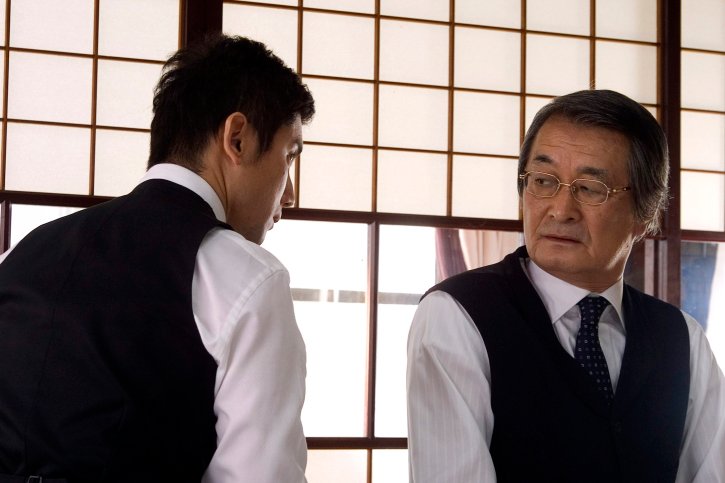
Una de las frases memorables de esta película es cuando el protagonista ve la migración de unos salmones, especies animales que nadan en contra de la corriente para aparearse, pero mueren.
Daigo Le dice a otro personaje: ¿por qué trabajar tan duro, si de todas maneras vas a morir?
Este diálogo puede prestarse para muchas interpretaciones, y una de ellas es que la muerte es inminente, y no vale la pena agobiar la existencia por algo que terminará, pero esto no quiere decir que la vida se traduzca a la inacción o apatía, sino todo lo contrario: es corta, y hay que aprovecharla. El esfuerzo excesivo y ajetreado más bien la reduce a ser una competencia sin sentido.
Otro aspecto de la película es la comedia con la que filtran su premisa. Al comienzo parece ser un drama existencial, que lo es, pero poco a poco se van dejando situaciones agridulces, dignas de carcajadas.
Okuribito, ganadora del Óscar a mejor película extranjera en 2009, es una historia para reír, llorar, y definitivamente valorar la vida.

0
0
0.000
!discovery 40
This post was shared and voted inside the discord by the curators team of discovery-it
Join our Community and follow our Curation Trail
Discovery-it is also a Witness, vote for us here
Delegate to us for passive income. Check our 80% fee-back Program